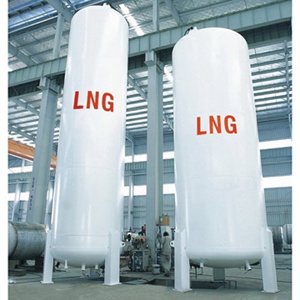Quantum Power Ghana Gas (QPRGG), would by the first quarter of 2016, distribute Liquefied Natural Gas (LNG) to Independent Power Producers (IPPs) for the generation of electricity at a lower cost to consumers.
This would be actualised with the completion a $500 million project, to be sited off-shore, to provide liquefied natural gas directly to industries within the Tema Metropolitan Area and the rest of the Eastern coast of Ghana.
The project is being executed by QPRGG, in collaboration with Golar LNG, which would provide the required floating LNG storage, regasification unit (FSRU), and some technical, engineering, design, and construction services.
In an interview with the Ghana News Agency (GNA), in Accra, on Tuesday, Mrs Vicky Nartey a spokesperson for the company, said: “QPRGG’s vision is to provide reliable cheaper LNG to independent power producers to enable them to generate electricity at a lower cost for sale to consumers.
“This would go a long way to contribute to the nation’s socio-economic development.”
LNG is created by cooling natural gas, to 160ºC, into a clear, colourless, non-toxic liquid. LNG can be transported and stored more easily than natural gas because it occupies up to 600 times less space. When LNG reaches its destination, it is returned to a gas at regasification facilities and utilised for intended purposes.
Mrs Nartey said QPRGG seeks to address Ghana’s growing industrial energy demand, which has out-stripped supply, thus creating serious challenges for accelerated economic development.
She said industries in Tema must receive regular, reliable and cheaper sources of power to accelerate national economic growth.
QPRGG seeks to fill in the gap with the development of LNG storage, regasification and deliveries facilities in Tema, thus leading efforts to contain Ghana’s energy challenges, she said.
Mrs. Nartey said the project would contribute to raising living standards through industrialization and would make the country become an industrial power hub for the West African sub-region and this is critical to Ghana’s Shared Growth Strategy.
She recalled that in September, last year, QPRGG organized a sensitization workshop on the project for stakeholders in the energy sector.
She said the project is progressing smoothly and is being implemented in strict compliance with the Environmental Protection Agency’s rules and regulations.
Ms Anita Compah-Keyeke, also of QPRGG, lauded the Ministry of Energy and Petroleum for encouraging creative private sector-led LNG solution for the country, in which power generators could arrange for imports of LNG to feed their businesses.
She said when the project is fully operational, the 10 per cent annual increase in energy demand would be addressed, while the nation would save $ 250 million annually.
The savings, she said, could be used to provide infrastructure such as schools, hospitals, and good roads.
She said the project would have the initial ability to receive, store, re-gasify and deliver over 1.75 million tonnes of LNG per year, utilizing a state-of-the art, purpose-built, dedicated FSRU moored off-shore, with associated sub-sea and onshore pipeline networks to deliver the natural gas to power generators in Tema.
Business News of Wednesday, 20 August 2014
Source: GNA



![New IGP, COP Christian Tetteh Yohonu [L] and immediate-past IGP, Dr. Akuffo Dampare New IGP, COP Christian Tetteh Yohonu [L] and immediate-past IGP, Dr. Akuffo Dampare](https://cdn.ghanaweb.com/imagelib/pics/140/14041582.295.jpg)









